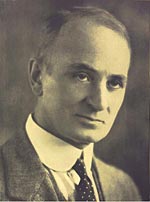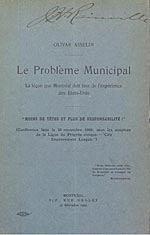

Electoral fraud
Those provisions favored democratic rights up to a certain point, but the property qualification still constituted a major obstacle, even more so in the case of mayoral candidates. As of 1894, they were required to own property worth $10 000.
Workers’ associations were becoming more actively involved in local political life and they sharply denounced the maintenance of the property qualification. Those associations had been clamoring for the abolition of statute labor for over half a century, and their request was finally granted in 1883.
At the end of the nineteenth century, unions leaned toward organized political action. Workers’ clubs were set up in several city districts, and in 1889, certain militants founded the Parti ouvrier de Montréal. It made rather modest interventions at the beginning, but gradually played a greater role on the political scene. In 1910, party candidate Joseph Ainey held one of the four positions on the new Board of Commissioners.
Numerous irregularities in election proceedings were maintained, in spite of the new regulations that had been adopted. The existence of those infamous “telegraphs” regularly made headlines. It involved people who voted for other electors. As there was no way of controlling the identity of citizens, it often happened that individuals voted under various names in different districts. Olivar Asselin, one of the main observers of the local political scene in 1909, eloquently stated as follows:
“…I am not afraid to state that, in any election the least bit contested in Montréal, there has not been an honest poll for the past twenty years. Nothing in municipal records enables us to establish the identity of the voter: no signature, no description (…) The male and female telegraphy system at times reaches up to twelve of fifteen hundred in a single district. They vote not only for the deceased and the absent, but also for the latecomers, and those who would claim to be astonished are indeed very naïve.”1
1. Olivar Asselin, Le problème municipal. La Leçon que Montréal doit tirer de l’expérience des Etats-Unis, Montréal, 1909, pp. 13-14.























